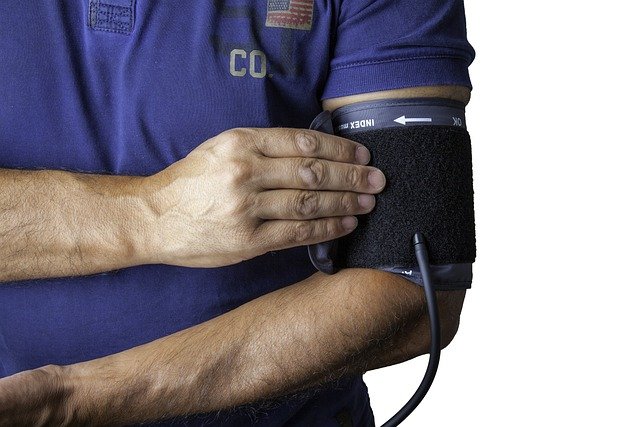Understanding Depression: The Importance of Depression Tests
Depression is a serious mental health condition that affects millions of people worldwide. Recognizing the signs and symptoms of depression is crucial for early intervention and effective treatment. Depression tests are valuable tools that can help individuals and healthcare professionals assess the presence and severity of depressive symptoms. This article explores the significance of depression tests, how they work, and their role in mental health care.

Depression tests can be self-administered or conducted by a healthcare professional. They often use standardized scales, such as the Patient Health Questionnaire-9 (PHQ-9) or the Beck Depression Inventory (BDI), which have been validated through extensive research. The responses to these questions are then scored, providing an indication of the likelihood and severity of depression.
Why are depression tests important for mental health?
Depression tests play a crucial role in mental health care for several reasons. First, they serve as an initial screening tool, helping to identify individuals who may be experiencing depression but have not yet sought professional help. Early detection can lead to timely intervention and improved outcomes.
Secondly, these tests provide a standardized way to assess and quantify depressive symptoms. This objectivity is valuable for both patients and healthcare providers, as it offers a common language to discuss the severity of symptoms and track progress over time.
Furthermore, depression tests can help raise awareness about mental health and encourage open conversations. By providing a structured format for discussing symptoms, these tests can make it easier for individuals to express their feelings and experiences to healthcare professionals or loved ones.
How accurate are depression tests in diagnosing mental health issues?
While depression tests are useful screening tools, it’s important to note that they are not definitive diagnostic instruments. The accuracy of these tests can vary depending on factors such as the specific test used, the setting in which it’s administered, and the individual’s honesty in answering questions.
Depression tests are designed to be sensitive to depressive symptoms, which means they may sometimes produce false positives. This is generally considered acceptable, as it’s better to identify potential cases that can be further evaluated by a mental health professional.
However, it’s crucial to understand that a depression test alone cannot provide a clinical diagnosis. A comprehensive evaluation by a qualified mental health professional, which may include a clinical interview, medical history review, and other assessments, is necessary for an accurate diagnosis and appropriate treatment plan.
Can habit tracking and mood monitoring complement depression tests?
Habit tracking and mood monitoring can be valuable companions to traditional depression tests. These practices involve regularly recording daily activities, behaviors, and emotional states. By keeping track of these factors over time, individuals can gain insights into patterns that may be contributing to or alleviating their depressive symptoms.
Many digital health apps and tools now offer features for habit tracking and mood monitoring. These can help users identify triggers for negative moods, recognize positive coping strategies, and track the effectiveness of treatments or lifestyle changes. When used in conjunction with depression tests, these tools can provide a more comprehensive picture of an individual’s mental health journey.
What are common symptoms assessed in depression tests?
Depression tests typically evaluate a range of symptoms associated with depressive disorders. Some of the most common symptoms assessed include:
-
Persistent sad, anxious, or “empty” mood
-
Loss of interest or pleasure in activities once enjoyed
-
Changes in appetite or weight
-
Sleep disturbances (insomnia or excessive sleeping)
-
Fatigue or loss of energy
-
Feelings of worthlessness or excessive guilt
-
Difficulty concentrating or making decisions
-
Restlessness or irritability
-
Thoughts of death or suicide
It’s important to remember that experiencing some of these symptoms does not necessarily mean an individual has depression. The frequency, duration, and intensity of symptoms, as well as their impact on daily functioning, are all considered in a comprehensive assessment.
Where can one find reliable depression tests and mental health resources?
There are numerous resources available for those seeking depression tests or mental health support. Many reputable organizations offer free online screening tools that can be a good starting point. However, it’s crucial to follow up with a healthcare professional for a thorough evaluation and proper diagnosis.
Some reliable sources for depression tests and mental health information include:
-
Mental Health America (MHA)
-
National Institute of Mental Health (NIMH)
-
Depression and Bipolar Support Alliance (DBSA)
-
Anxiety and Depression Association of America (ADAA)
-
World Health Organization (WHO)
These organizations provide validated screening tools, educational resources, and guidance on seeking professional help. Remember, while online tests can be informative, they should not replace professional medical advice or treatment.
In conclusion, depression tests are valuable tools in the realm of mental health care. They offer a structured approach to identifying potential depressive symptoms and can serve as a bridge to professional help. When used in combination with habit tracking, mood monitoring, and comprehensive clinical evaluations, these tests contribute to a holistic approach to mental health management. If you or someone you know is struggling with symptoms of depression, don’t hesitate to reach out to a qualified mental health professional for support and guidance.
This article is for informational purposes only and should not be considered medical advice. Please consult a qualified healthcare professional for personalized guidance and treatment.






